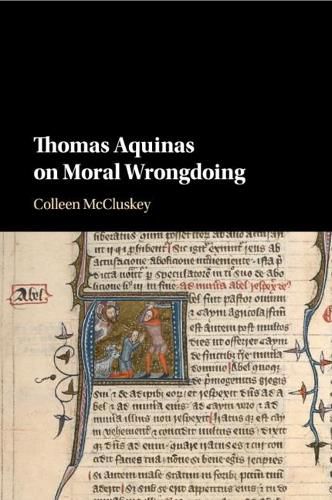Readings Newsletter
Become a Readings Member to make your shopping experience even easier.
Sign in or sign up for free!
You’re not far away from qualifying for FREE standard shipping within Australia
You’ve qualified for FREE standard shipping within Australia
The cart is loading…






Medieval thinkers were both puzzled and fascinated by the capacity of human beings to do what is morally wrong. In this book, Colleen McCluskey offers the first comprehensive examination of Thomas Aquinas’ explanation for moral wrongdoing. Her discussion takes in Aquinas’ theory of human nature and action, and his explanation of wrong action in terms of defects in human capacities including the intellect, the will, and the passions of the sensory appetite. She also looks at the notion of privation, which underlies Aquinas’ account of wrongdoing, as well as his theory of the vices, which intersects with his basic account. The result is a thorough exploration of Aquinas’ psychology which is both accessible and illuminating, and will be of interest to a wide range of readers in Aquinas studies, medieval philosophy, the history of theology, and the history of ideas.
$9.00 standard shipping within Australia
FREE standard shipping within Australia for orders over $100.00
Express & International shipping calculated at checkout
Medieval thinkers were both puzzled and fascinated by the capacity of human beings to do what is morally wrong. In this book, Colleen McCluskey offers the first comprehensive examination of Thomas Aquinas’ explanation for moral wrongdoing. Her discussion takes in Aquinas’ theory of human nature and action, and his explanation of wrong action in terms of defects in human capacities including the intellect, the will, and the passions of the sensory appetite. She also looks at the notion of privation, which underlies Aquinas’ account of wrongdoing, as well as his theory of the vices, which intersects with his basic account. The result is a thorough exploration of Aquinas’ psychology which is both accessible and illuminating, and will be of interest to a wide range of readers in Aquinas studies, medieval philosophy, the history of theology, and the history of ideas.